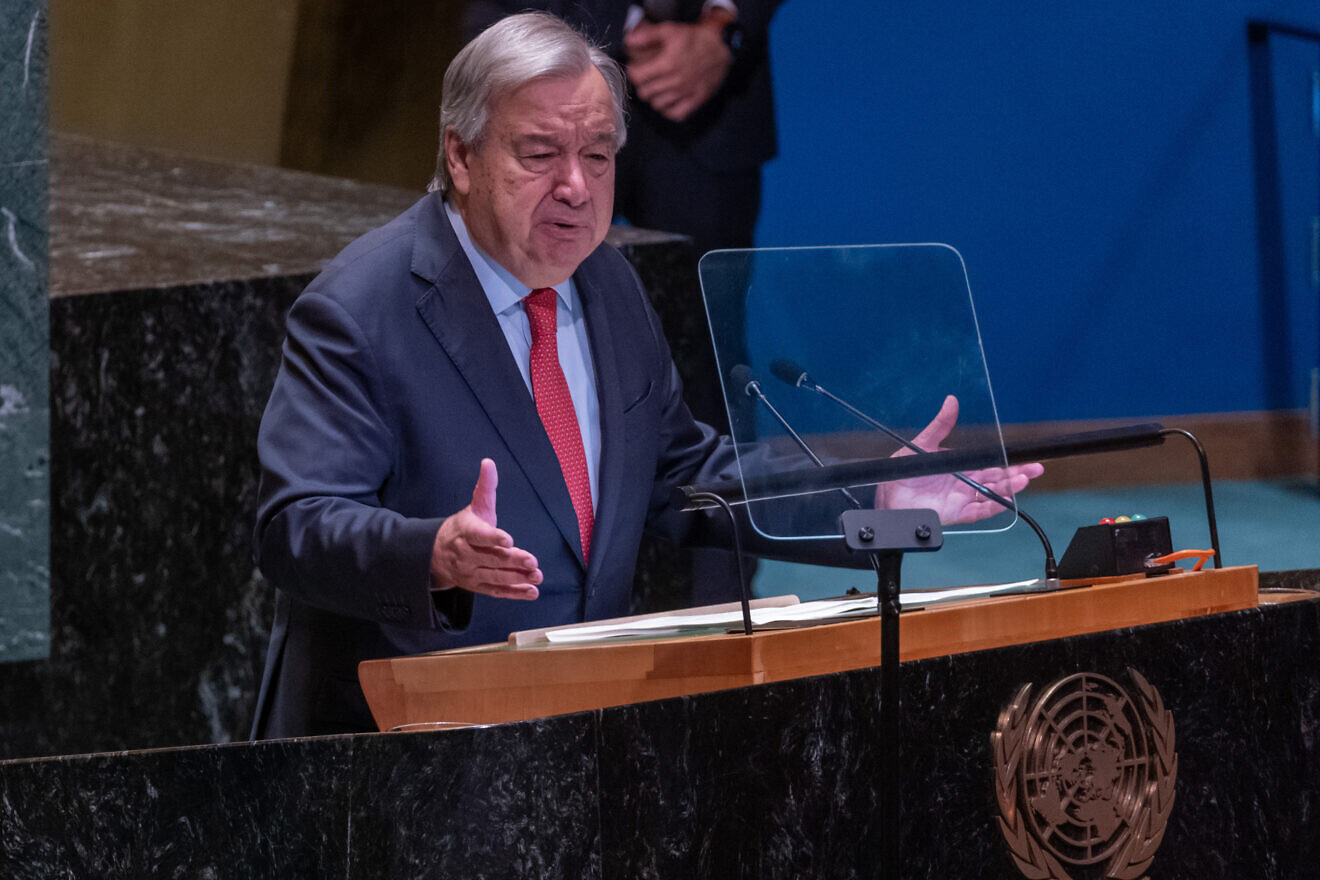Courtesy of JNS. Photo credit: Spencer Platt/Getty Images
U.N. Secretary-General António Guterres speaks to world leaders, diplomats and others during the United Nations General Assembly in New York City on Sept. 24, 2024
(JNS) — The United Nations Security Council expressed its backing on Thursday for U.N. Secretary-General Antonio Guterres in the wake of Israel’s announcement that he was not welcome in the country due to his failure to condemn Iran’s ballistic missiles attack against the Jewish state.
The council “underscored the need for all [U.N.] member states to have a productive and effective relationship with the secretary-general,” the U.N. body said in a statement.
Without naming Israel explicitly, it went on to say that “Any decision not to engage with the U.N. secretary-general or the United Nations is counterproductive, especially in the context of escalating tensions in the Middle East.”
The council further requested that all member states “refrain from any actions that undermine his work and that of his office.”
The Security Council comprises five permanent member states — the United Kingdom, China, France, Russia and the United States — and 10 non-permanent members elected by the General Assembly for two-year terms.
Last week, Israeli Foreign Minister Israel Katz declared Guterres “persona non grata,” in the latest series of scathing criticisms hurled at the secretary-general for his alleged anti-Israel position.
“Anyone who cannot unequivocally condemn Iran’s heinous attack on Israel does not deserve to step foot on Israeli soil,” said Katz.
The Israeli foreign minister further called Guterres an “anti-Israel secretary-general who lends support to terrorists, rapists, and murderers.”
Hours after Katz’s announcement, Guterres continued to blame the Jewish state for recent escalations in the Middle East.
Addressing an emergency session of the UNSC on Wednesday morning, Guterres chastised Israel for balking at last week’s proposal by the United States and France, which called for a three-week ceasefire between Israel and Hezbollah.
“Israel refused that proposal and stepped up its strikes, including bombing the Hezbollah headquarters where its leader [Hassan Nasrallah] was killed,” said Guterres.
Guterres said at Wednesday’s meeting, which included Israeli, Lebanese, Iranian, Iraqi and Syrian representatives, that according to Iran, its ballistic missile attack on Israel was a response “to the killings of Hassan Nasrallah and the Islamic Revolutionary Guards Corp commander Abbas Nilforoushan … as well as that of the Hamas leader Ismail Haniyeh in Tehran in July.”





